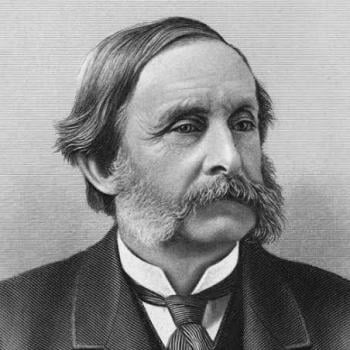
Does faith belong in political discourse, or does it fit in worse than a Mormon prophet in a cocktail bar? This is a question Bernie Sanders touches on – though perhaps not in precisely those words – with yet another new book: It’s OK to Be Angry About Capitalism, the twice presidential candidate’s latest attempt at remaking America within 300-ish pages. All in an afternoon’s work, I’m sure!
They say we live in secularising times. (I’m looking at you, Charles Taylor.) Nevertheless, it speaks to the power theological concepts have over the reading public in the United States and other anglophone countries, even in godless 2023, that such ideas are to be found in a Bernie Sanders publication.
That said, Sanders’ appeals to religion aren’t heavy-handed. Neither do they feature on every page. I do regard their mere presence, however – in any shape or form – as notable in itself. If it’s acceptable to rage about capitalism, Sanders believes, then it’s ok to voice that anger with a sturdy roar of religious argument.
Sanders knows that religious language is morally freighted. The Vermonter doesn’t shrink from the moral stakes of representative democracy, that almighty clash of stakeholder interests we call the political process. ‘We need to think big, not small,’ he declaims, ‘and we need to introduce questions of morality into the political debate by challenging the greed, irresponsibility and brutality of the ruling class’ (p. 263).
Moral talk from politicians is a little jarring to my British ears – pleasantly so, like jazz chords. You see, Britain is a country where politicians rarely talk about morality. For example, when the Chancellor delivered his 2023 Spring Budget last month before the House of Commons in an hour-long speech, not once did he give any moral justifications for the Government’s decisions.
There were, granted, a couple of references to ‘values’, even ‘deeply-held values’, which isn’t exactly the same. The whys and wherefores behind spending commitments included ‘enterprise’, ‘growth’ and ‘stability’. The buzzwords of ideology tumbled after each other at spectacular pace, like a tribe of roly-poly meerkats on a vertical slip ‘n’ slide…
Moral factors weren’t mentioned, although this doesn’t automatically mean they weren’t embedded into the Budget in subtle ways. Inevitably, there are others who would indeed say the Budget was immoral. That’s politics! The satirical YouTube account PoliticsJOE, for instance, composed a Budget-inspired rendition of Bobby McFerrin’s “Don’t Worry, Be Happy”, where Tory ministers dispense cruelly flippant advice for poverty-stricken Brits along to the famous reggae melody.
My point is more about how the Chancellor’s technocratic language is at variance with Sanders. The latter thinks morality should be to the forefront, right in the metaphorical shop window to dress up the season’s must-have policies. These are two very different political discourses, from two political figures who probably share little in common.
Even governments drawn from the same party come into power with different priorities. Only compare Harold Wilson with Tony Blair, Liz Truss with Rishi Sunak. Readers in other countries may know that in the UK, since the Conservatives entered office, we have had a lot of Prime Ministers. When Jesus talked to the Samaritan woman at Jacob’s Well, he said, ‘The fact is, you have had five husbands’ (John 4.18). In thirteen years, 10 Downing Street has welcomed as many new premiers!
With so many top dogs coming and going, it goes without saying that some Prime Ministers from this period felt more comfortable than others including a moral message in their comms. We live in a pluralistic age. It would be wrong, in the light of such a reality, to say that every government must satisfy the demands of Judeo-Christian morals with its every policy.
Some would only be too happy to have religion dictate others’ choices, which is an extreme position. Exhibit A: religious opposition to same-sex marriage. It is a shame, however, that amid all the technicalities of a bill before Parliament, such as the Conservatives’ Budget, moral debate of any sort often gets waylaid…
On the subject of conservatives – American ones, this time – Sanders has this to say, ‘My conservative friends often talk about the moral values that should be guiding the United States.’ He sets his own seal to this choice of emphasis, ‘There are moral values that should be guiding Americans into the future, and about which we should be very clear.’ He provides a list, atop which we find, ‘Greed is not good.’ (p. 99).
Anyone who has followed either, or indeed both, of Sanders’ presidential campaigns will not be surprised to discover that he considers greed a cardinal vice. It is, after all, one of seven deadly sins. This list of human shortcomings is famous enough to have inspired a movie – quite a good one, I might add. I refer, naturally, to David Fincher’s 1995 crime thriller, Seven.
To mortify the seven deadly sins, to strive against evil at its root, has become a key moral imperative in the Christian faith. Most other moralities also view greed with displeasure. Ayn Rand’s egoism – a doctrine with all the human warmth of a stale fish-finger – being a rare counterexample. Yes, there are many schools of moral thought: some theologically grounded, others not.
Sanders offers the following philosophy, based on a phrase attributed to Gandhi, to serve as a moral yardstick: ‘If a nation is morally judged by how we treat the weakest and most vulnerable among us, our health care system fails miserably’ (p. 127). One does not have to be religious to concur. How and ever, biblical texts like the Pentateuch and the Prophets are full of concern for the disenfranchised.
Churchgoers will have no trouble finding extracts in Sanders’ new tome which echo their favourite scriptures and liturgies. You can find almost anything you want in a book – anything except, say, photorealistic etchings of a blue space-gopher named Ralphie – when you look hard enough. Exempli gratia, Sanders’ rebuke to the fossil fuel industry. This portion of It’s OK bears a striking, if almost certainly coincidental, resemblance to the confession Anglicans use during our Morning Prayer services.
Here is the passage in question:
‘Fossil fuel executives made a calculated decision to deceive the word about global warming. They determined that their short-term profits were more important than the well-being of the planet and the lives of billions of people. They sinned against humanity and against the future in the foulest of ways imaginable.’ (p. 109).
And here is the confession prayer:
‘Almighty God, our heavenly Father,
we have sinned against you
and against our neighbour
in thought and word and deed,
through negligence, through weakness,
through our own deliberate fault.
We are truly sorry
and repent of all our sins.
For the sake of your Son Jesus Christ,
who died for us,
forgive us all that is past
and grant that we may serve you in newness of life.
to the glory of your name.’
The similarities are almost uncanny. But it isn’t only Christianity that inspires the Senator, who comes from a Jewish background. He cites religions other than the Christian faith as influential contributors to moral thought. ‘We have to decide whether we take seriously what the great religions of the world – Christianity, Judaism, Islam, Buddhism, Hinduism, and others – have preached for thousands of years,’ he writes (p. 101).
‘Do we believe in the brotherhood of man and human solidarity?’ Sanders asks, ‘Do we believe in the Golden Rule that says each and every one of us should “do unto others as you would have them do unto you”?’ Religion, as is evident in these quotes, grants us ample resources on which to base our moral discourse. Oh yes, religion is a philosophical trove with more hidden treasures than the vintage rack at Urban Outfitters!
Bernie Sanders is a man who recognises the moral duties incumbent on those who pursue careers in public life. He beckons his readers, then, to bring a moral eye to the way modern societies are set up and run, in his case the United States. Maybe, sometime in the near future, the Bern’ could win a seat in the Commons and write us a wee Budget!?
4/12/2023 4:57:13 PM





